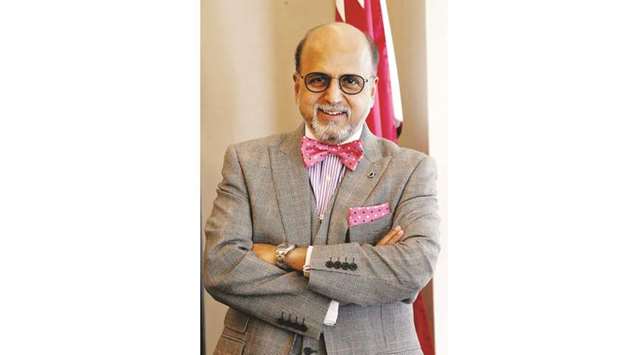After a year of uncertainty about the impact of global trade wars, we are seeing the real impact in 2019 with forecasts for lower growth of trade. According to WTO, mounting trade tensions, an increase in trade-restrictive measures and continuing economic uncertainty created real challenges for world trade in 2018.
These factors and a deceleration in overall economic activity slowed momentum in global trade, restricting merchandise trade growth to 3%. This downward trend is expected to continue in 2019, with trade projected to grow by just 2.6%. Amidst the slowdown in global trade, the financial services providers will identify, develop and strengthen the right connections and what is required to succeed in a hyper-connected world.
The Sibos 2019 conference agenda will centre on the theme “Thriving in a hyper-connected world, recognising the growth opportunities available from digital technologies to initiate new platforms, value propositions and business models”.
The regulatory change, macroeconomic factors and technology-driven disruption has never been more important for banks to collaborate at the same time as continuing to compete.
New market models are being developed as banks collaborate to build new networks, and those new networks then interconnect.
The interest in data science is ever increasing. Banks are already using data science to create a more personalised customer experience, improve anomaly detection, automate processing and trading, for risk scoring of potential customers and to optimise financial crime compliance.
If banks are to embrace open banking, they need to adopt a more commercial and strategic frame of reference. Open banking is not about providing tools to fintech disrupters, it is about establishing the relevance of banks in the digital economy. We are entering a ‘world of platforms’ where vast portions of economic activity will be transacted online.
Digital platforms will incorporate financial services, there is no doubt. The only question is whether those financial services will be provided by banks, fintechs or bigtechs. If banks wish to remain relevant in the world of platforms, they must come together to agree standard APIs for the retail and wholesale financial services required by platform users.
Open banking is not about regulatory minimums, but about the banking industry securing its position as the financial layer of the digital economy. Hyper-connected customers are driving the development of the open digital economy. Banks have a fundamentally different role to play in this new world where ownership becomes sharing, product is experience, data the asset and we partner rather than build or buy. Those that adapt successfully to this new open architecture will look beyond regulation, beyond product silos, beyond segments, even beyond banking, to build new value propositions underpinned by data, trust and identity.
Over 56% of all SWIFT international transfers sent via Global Payment Initiative (GPI), we are truly entering a new era in global payments. Building on this success, we’re moving rapidly to complement the core GPI service with a raft of additional services that will further speed up, reduce friction and bring innovation in international payments.
In a future of open banking powered by APIs and blockchain, where every transaction is instant and without borders, the established finance industry has to transform to stay relevant. The challenge from the new world order is actually a prime opportunity to turn disruptors into enablers: by opening up and connecting ecosystems.
Banks with an agile mindset can fulfil their commitment to driving commerce and prosperity in their markets. Banks should master the strategy of being a connector by leveraging on technology amidst slowdown in global trade and growth, and invests in building real connections to clients, markets, and products with networks and innovative platforms.
* Dr R Seetharaman is Group CEO of Doha Bank.

